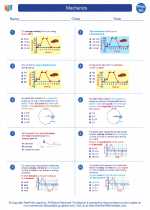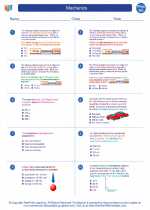What are Neutrons?
Neutrons are subatomic particles that exist within the nucleus of an atom. They have a mass similar to that of a proton, but they carry no electric charge, making them electrically neutral. This means that they are not repelled or attracted by electric forces and are only affected by the strong nuclear force.
Properties of Neutrons
- Mass: Approximately 1.675 x 10^-27 kg (similar to the mass of a proton)
- Charge: Electrically neutral
- Stability: Neutrons are stable when bound within a nucleus, but outside the nucleus, they are unstable and decay into a proton, an electron, and an antineutrino with a half-life of about 15 minutes.
Role of Neutrons in the Nucleus
Neutrons play a crucial role in determining the stability of the atomic nucleus. Their presence helps to bind protons together through the strong nuclear force, preventing the electromagnetic repulsion between positively charged protons from breaking the nucleus apart. Neutrons also contribute to the overall mass of the nucleus.
Neutrons in Nuclear Reactions
Neutrons are involved in various nuclear reactions, including nuclear fission and nuclear fusion. In nuclear fission, the bombardment of a nucleus with neutrons can induce the nucleus to split, releasing energy and more neutrons. In nuclear fusion, the combination of two light atomic nuclei into a heavier nucleus involves the interaction of protons and neutrons.
Applications of Neutrons
Neutrons have numerous practical applications, including:
- Neutron Scattering: Used to study the structure and properties of materials at the atomic and molecular levels.
- Neutron Activation Analysis: Employed in elemental analysis and determining the composition of materials.
- Neutron Imaging: Utilized for non-destructive testing and imaging of various objects, including biological samples and engineering components.
Conclusion
Understanding the properties and behavior of neutrons is fundamental to comprehending the structure of matter and various phenomena in nuclear physics. Their role in the stability of atomic nuclei, nuclear reactions, and diverse applications makes them a crucial component of the subatomic world.



